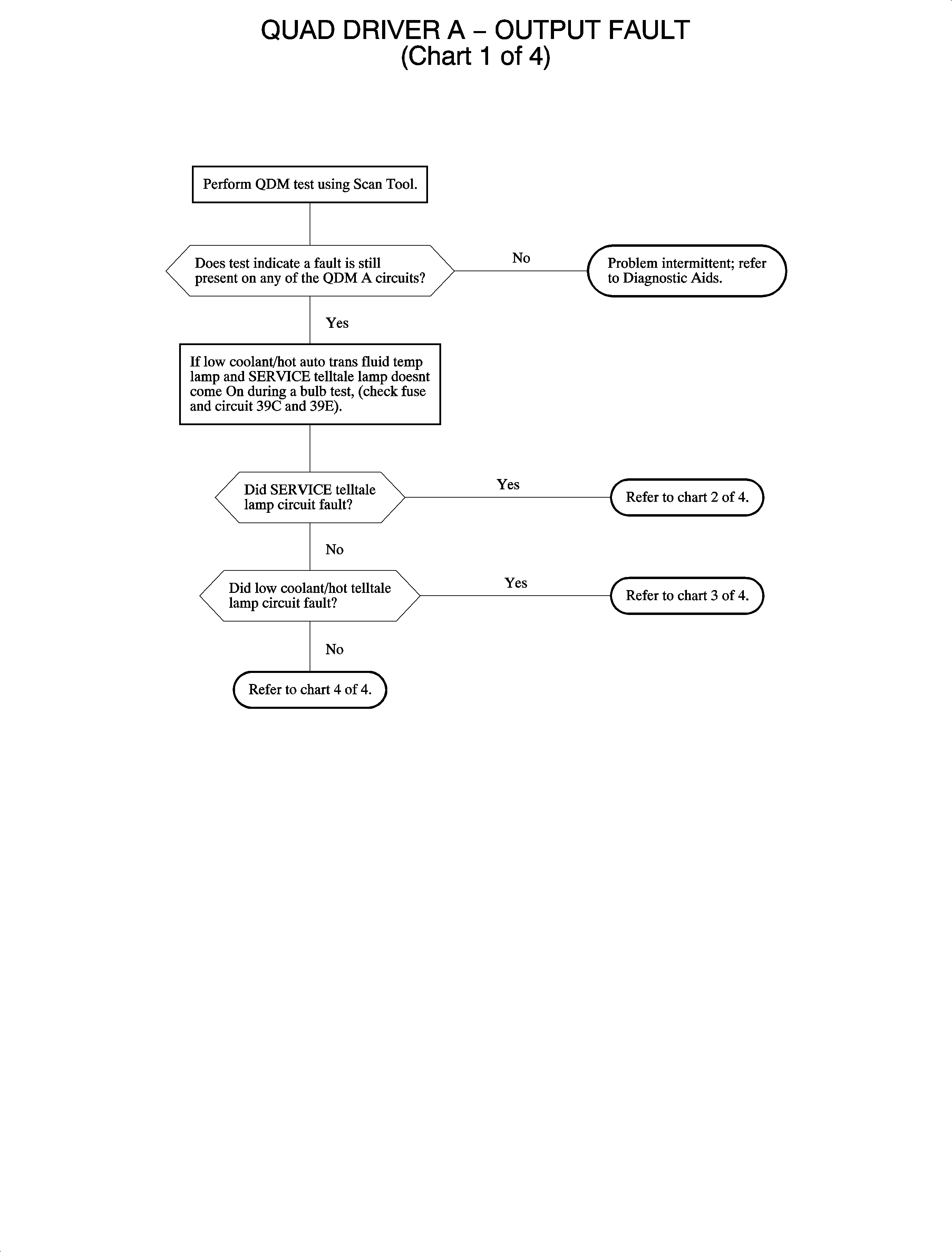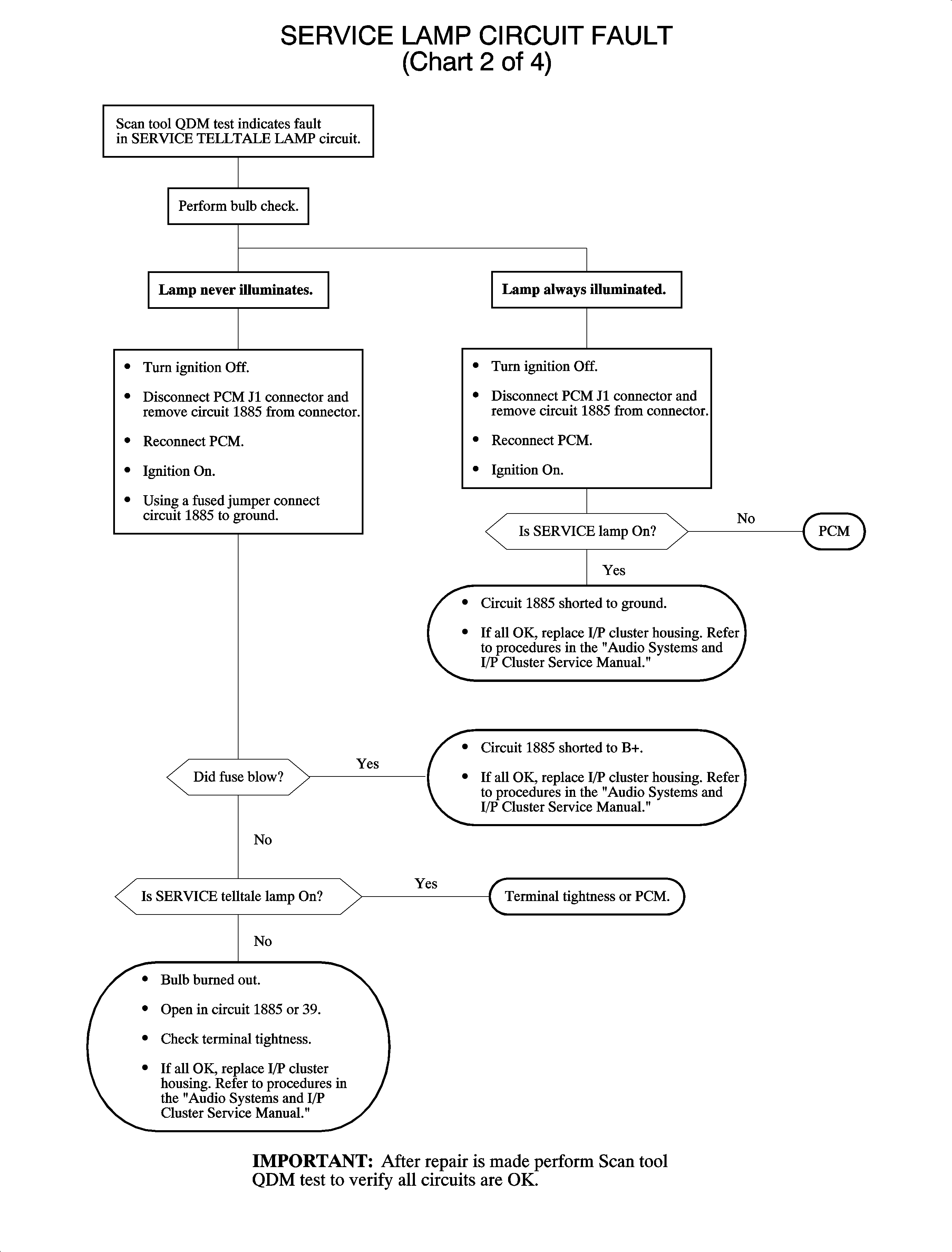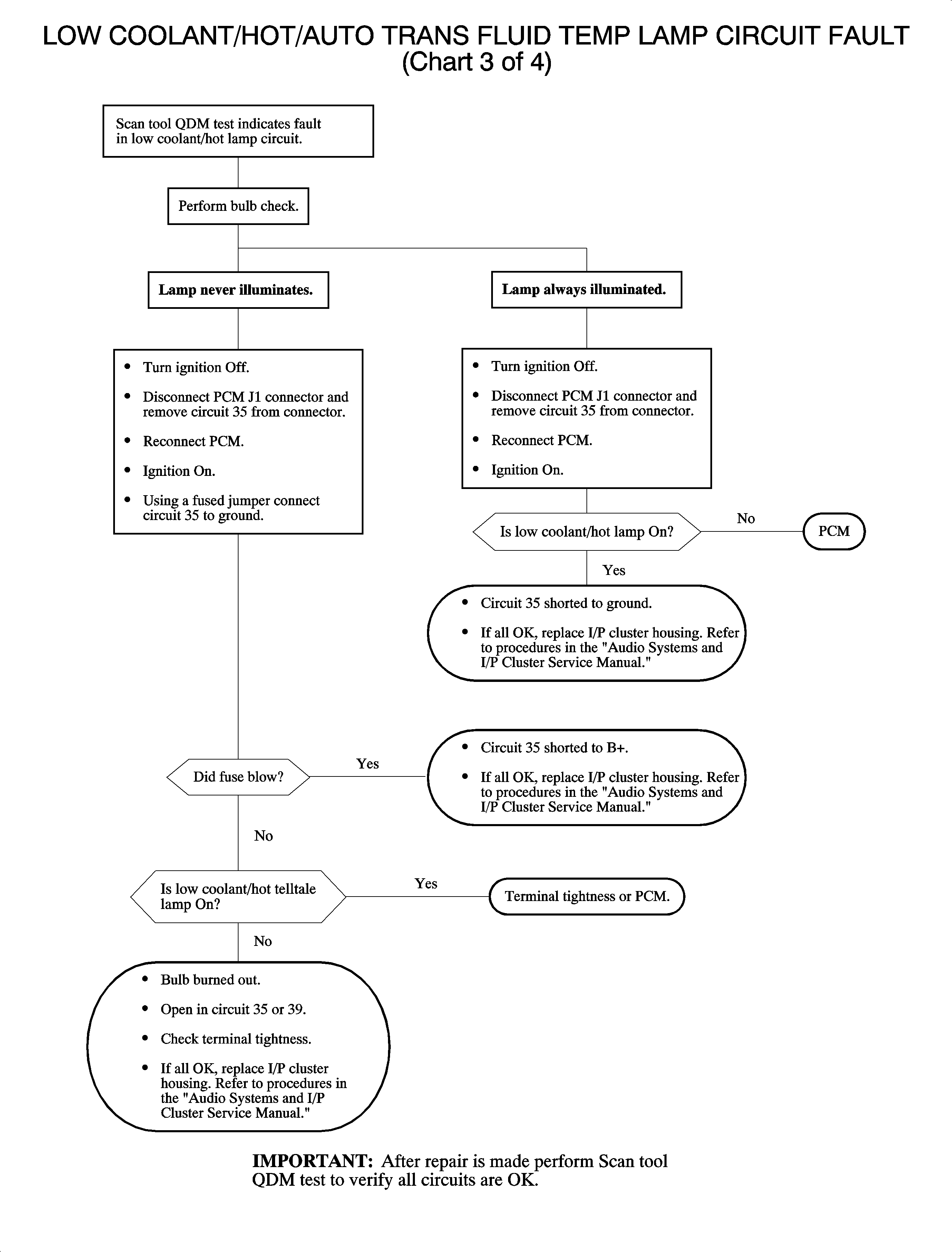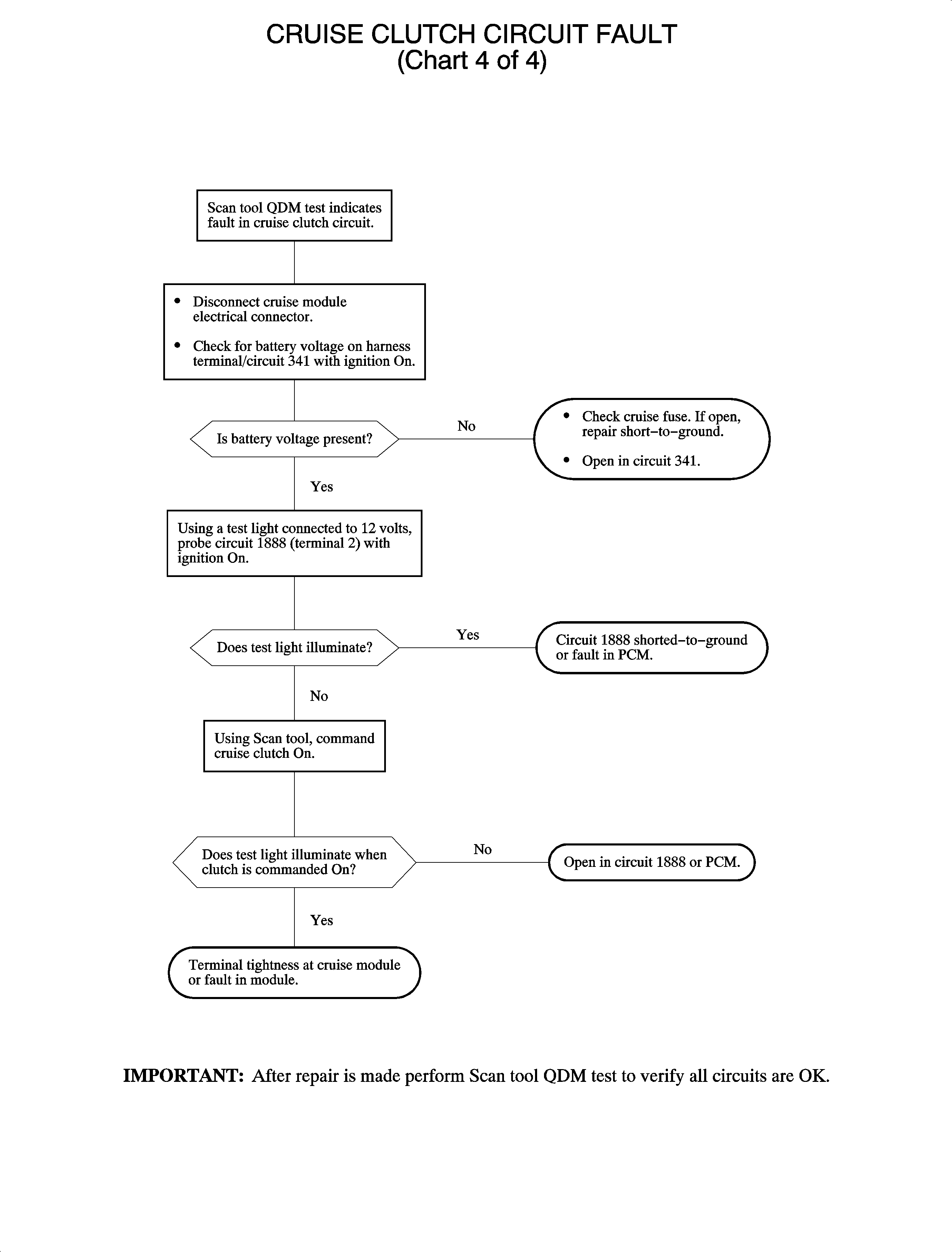Circuit Description
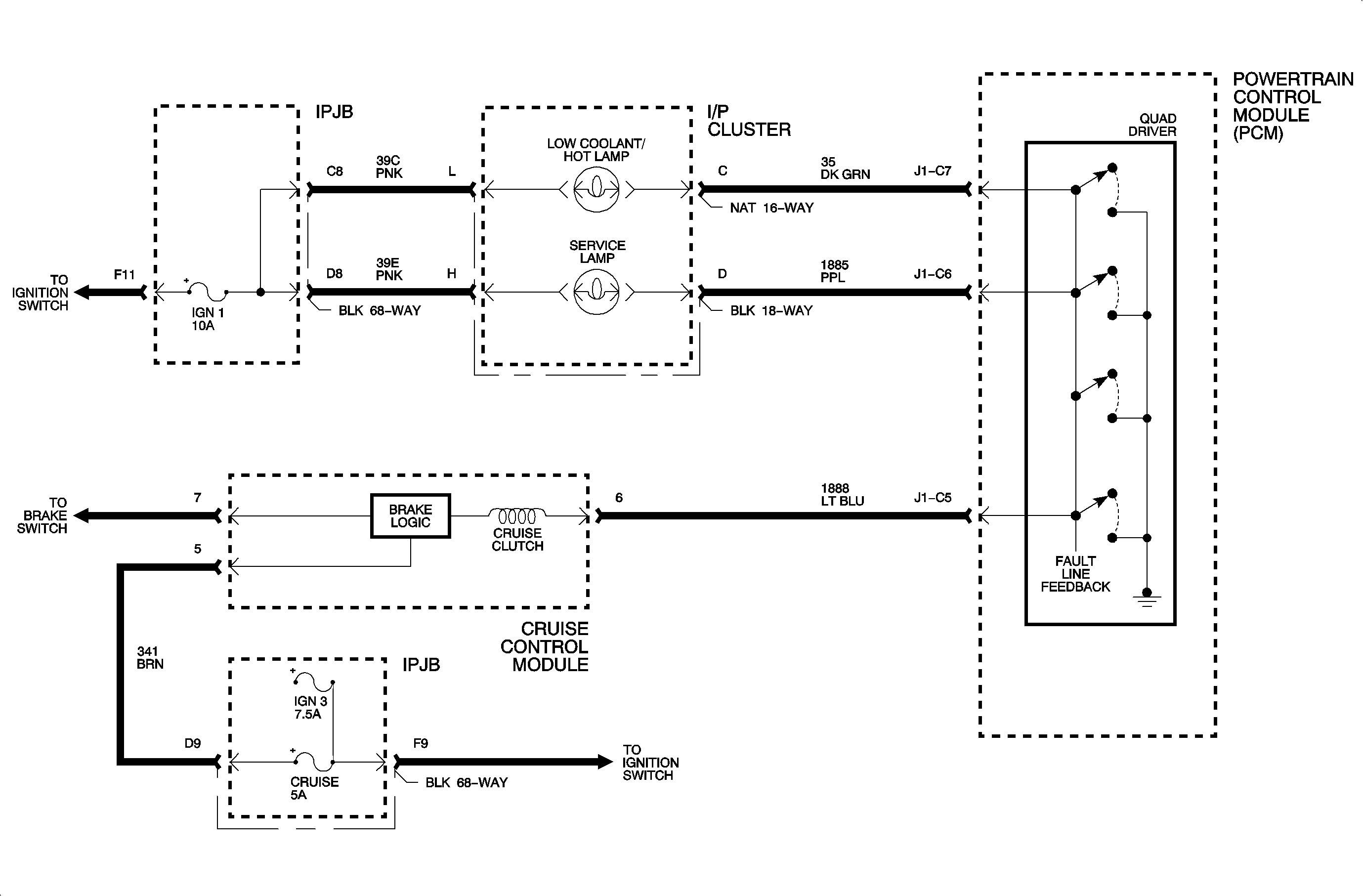
A quad driver module (QDM) is an electronic switch which completes a ground
circuit when switching ON. The QDM independently controls 4 separate outputs. A load
is connected between battery voltage and the QDM allowing the QDM driver to control
the output. Each QDM has fault detection logic which compares QDM driver input and
output voltages. The logic expects to measure less than 3 volts when the QDM
driver is ON and greater than 7 volts when OFF. The QDM has only one fault
line that will detect a fault on any of the 4 outputs. The scan tool can be used to
cycle the outputs ON or OFF. The scan tool can also perform an automated test which
can isolate the faulty circuit.
Conditions for Setting the DTC
DTC P1640 and/or P1641 will set if:
| • | There is an open, short to ground or short to voltage on any of the QDM
output circuits |
| • | The SERVICE telltale lamp circuit |
| • | Low coolant/hot telltale lamp circuit |
| • | Fault detected for 5 seconds for DTC P1641. Fault detected
for 20 seconds for DTC P1640. |
Important: The QDM circuit is continuously checked when
the engine is running.
Diagnostic Aids
| • | If one output is faulty, the PCM will shut down only that QDM output and
not the entire quad driver unless the quad driver reaches its thermal limit, short
to voltage. At this time it will turn all 4 quad driver outputs OFF. When the quad
driver cools down it will turn back ON and this process will start over. |
| • | A shorted or open circuit or bulb an cause a DTC P1640 or P1641
to set. |
Use the Saturn service stall system, if available, to diagnose the quad driver
circuits or use a scan tool and perform an off-board QDM test.
When viewing QDM fault, using a scan tool dynamic display or malfunction indicator
lamp (MIL) telltale , you may notice the fault appears to be intermittent. This may
be due to an intermittent fault, but more likely due to the way the fault detection
works.
For example, if the SERVICE telltale lamp is OFF, the PCM expects to refer to
12 volts on the circuit. If the circuit is open, 0 volts will be measured
on the circuit and the fault will be displayed. However, if the lamp is turned ON
the PCM expects to measure 0 volts on the circuit and will not detect a fault.
This causes an intermittent problem because the lamp is not continuously ON.
